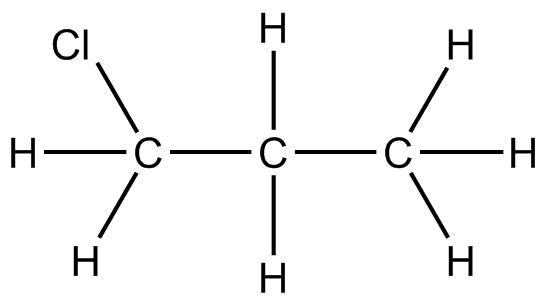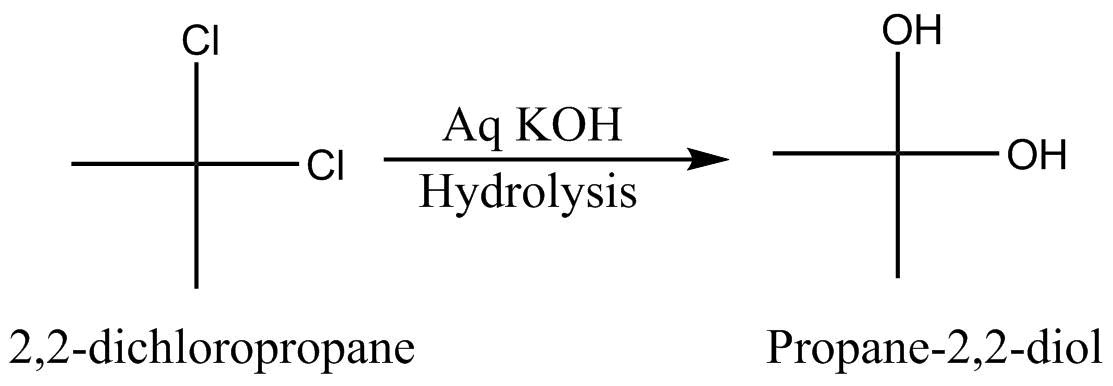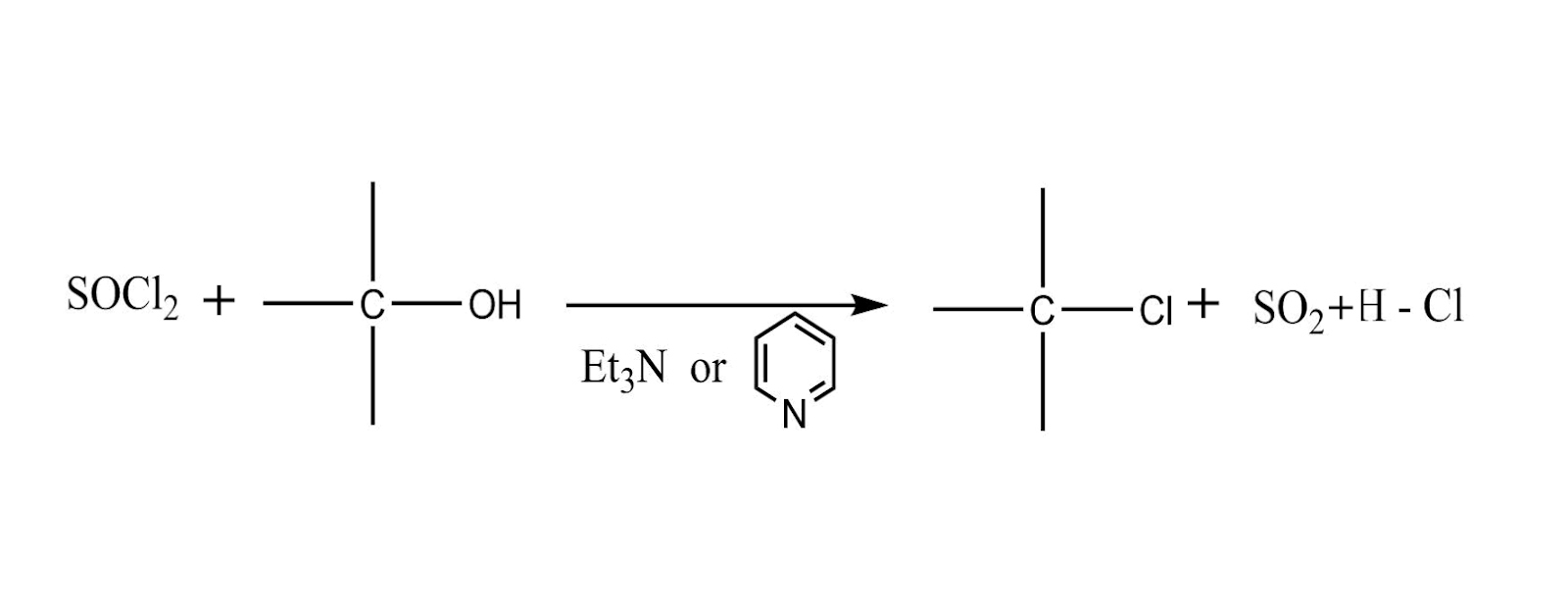Question
Question: In order to prepare 1-chloro-propane which of the following reactions can be employed? A. Propene ...
In order to prepare 1-chloro-propane which of the following reactions can be employed?
A. Propene and HCl in presence of peroxide.
B. Propene and Cl2 followed by treatment of aqueous KOH.
C. Propanal-1 and SOCl2/pyridine.
D. Any of the above can be used.
Solution
Propane is an organic compound having chemical formulaC3H8. Here ‘prop’ stands for the three carbon atoms and ‘ane’ represents that all the three carbon atoms are bonded with a single covalent bond. Chloro-propane is a substitute of propane in which one hydrogen atom is being replaced by a chlorine atom.
Complete step by step answer: The structure of 1-Chloropropane is shown below:

As we know that HCl gives Markownikoff’s addition to alkenes i.e. in addition reaction of hydrogen halide to an alkene or alkyne, the hydrogen atom of hydrogen halide(HX) becomes bonded to the carbon atom that has the greatest number of hydrogen atoms in the starting alkene or alkyne. This is because the chain reaction involved in this process shows some steps which are endothermic in nature.Therefore,

Here you can see that, H2O2(peroxide) shows no effect on the reaction. This is because the H-Cl bond is much stronger than H-Br bond. The peroxide effect is only observed in case of HBr.
An Additional reaction of alkenes occurs on a carbon-carbon double bond which gets converted to a single bond and atoms or groups are added to each of the two carbon atoms. According to this rule, the addition of Chlorine (Cl2) to propene can be shown as:

Now, when the product obtained from the above reaction i.e. dichloropropane is reacted with aqueous KOH(Potassium Hydroxide), then dichloro-propane undergoes hydrolysis as follows:

SOCl2 reacts with alkanols(R-OH) to form alkyl chlorides (R-Cl). The reaction takes place as follows:

Since option (A) and (B) does not give us the desired result, therefore option (D) which says ‘any of the above’ is also not correct.
So, the correct answer is “Option C”.
Note:
Thionyl chloride (SOCl2) is preferred for the production of chloro compounds from alcohols because the product is obtained in pure and large amounts.
